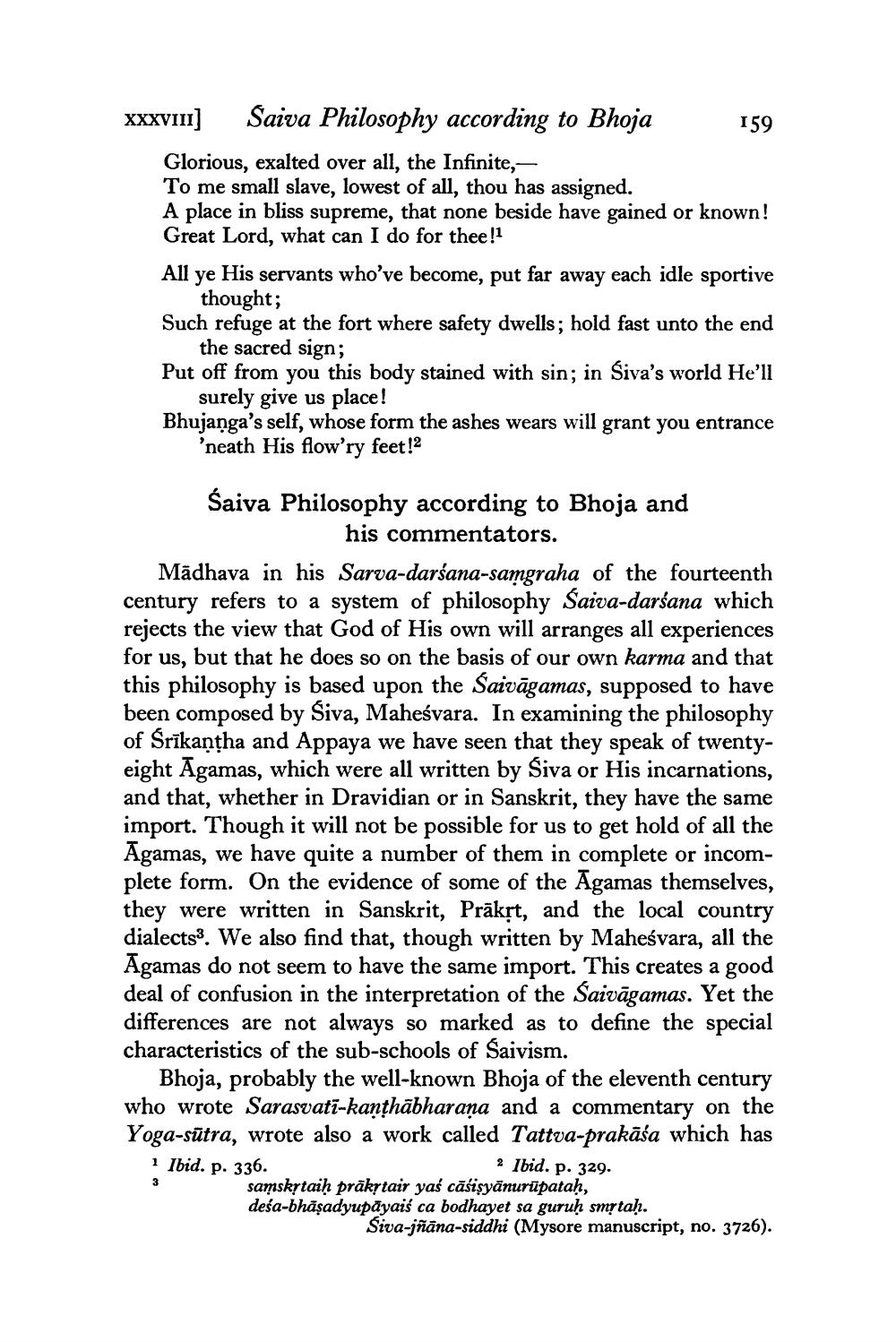________________
XXXVIII] Saiva Philosophy according to Bhoja 159
Glorious, exalted over all, the Infinite, - To me small slave, lowest of all, thou has assigned. A place in bliss supreme, that none beside have gained or known! Great Lord, what can I do for thee!1 All ye His servants who've become, put far away each idle sportive
thought; Such refuge at the fort where safety dwells; hold fast unto the end
the sacred sign; Put off from you this body stained with sin; in Siva's world He'll
surely give us place! Bhujanga's self, whose form the ashes wears will grant you entrance
'neath His flow'ry feet!2
Śaiva Philosophy according to Bhoja and
his commentators. Mādhava in his Sarva-darśana-samgraha of the fourteenth century refers to a system of philosophy Saiva-darśana which rejects the view that God of His own will arranges all experiences for us, but that he does so on the basis of our own karma and that this philosophy is based upon the Saivāgamas, supposed to have been composed by Siva, Maheśvara. In examining the philosophy of Srikantha and Appaya we have seen that they speak of twentyeight Āgamas, which were all written by Siva or His incarnations, and that, whether in Dravidian or in Sanskrit, they have the same import. Though it will not be possible for us to get hold of all the Agamas, we have quite a number of them in complete or incomplete form. On the evidence of some of the Agamas themselves, they were written in Sanskrit, Prākệt, and the local country dialects. We also find that, though written by Maheśvara, all the Agamas do not seem to have the same import. This creates a good deal of confusion in the interpretation of the Saivāgamas. Yet the differences are not always so marked as to define the special characteristics of the sub-schools of Saivism.
Bhoja, probably the well-known Bhoja of the eleventh century who wrote Sarasvatī-kanțhābharana and a commentary on the Yoga-sūtra, wrote also a work called Tattva-prakāśa which has 1 Ibid. p. 336.
2 Ibid. p. 329. samskytaih prākṣtair yas cāśisyānurüpatah, deśa-bhāşadyupāyais ca bodhayet sa guruh smrtah.
Siva-jñāna-siddhi (Mysore manuscript, no. 3726).




